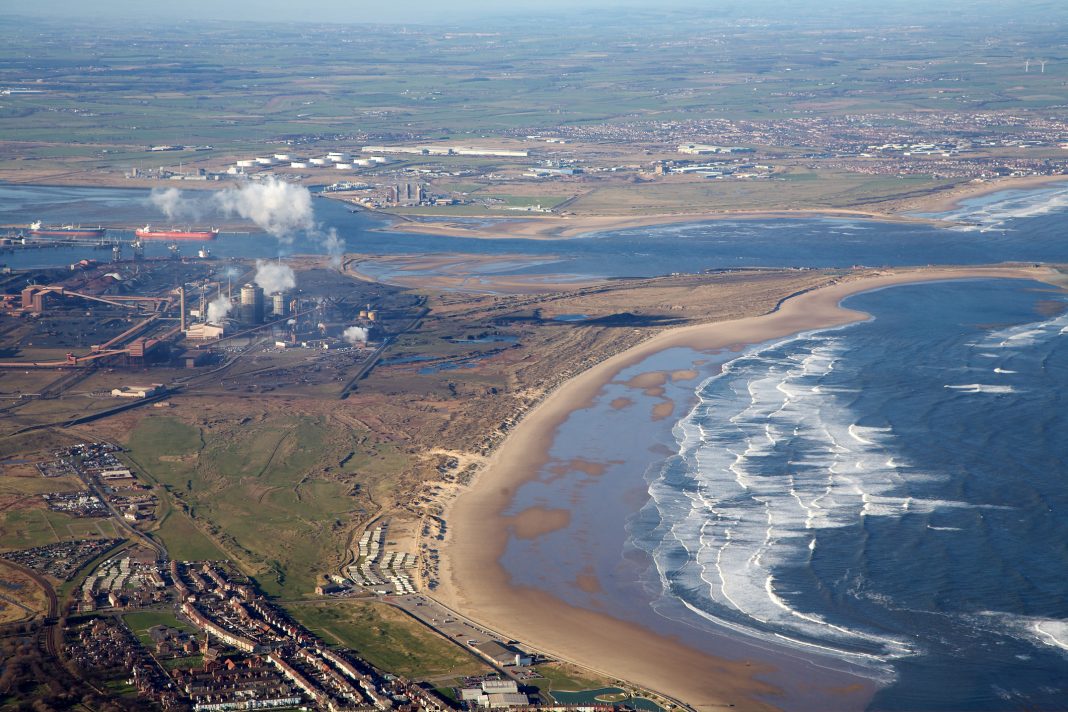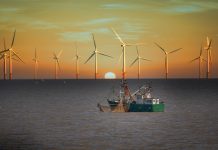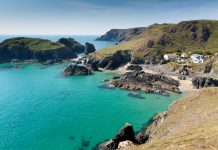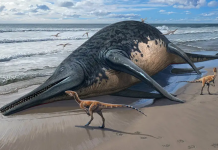Geovation has launched a national challenge, to award £5000 to find a sustainable solution in tackling coastal pollution
Human activities on land are the biggest sources of marine pollution – an estimated 8 million tonnes of plastic waste enter the world’s oceans each year.
Floods and other weather events then move the waste into the sea, where it is carried away by currents and diffuses, accumulating on the coastline and in estuaries which affect the wildlife and local residents in those areas.
Some common pollution sources involve solid waste dumped along coastlines, scattered litter on beaches, and pieces of broken-down ships. Additionally, major sea-based sources of marine pollution include discarded fishing gear, shipping activities, and legal and illegal dumping.
Britain’s coasts face numerous risks
Aiming to find a sustainable and enduring solution to diffuse coastal pollution, Geovation – Ordnance Survey’s open innovation network hub – is launching an environmental challenge with the UK Hydrographic Office (UKHO), for a prize of up to £5,000 for the winners.
With a coastline of 20,000 miles, including its islands, most of the population of Britain live within 100 miles of the coastline. This highlights the large threat coastal pollution poses to British residents, as coastal pollution is likely to affect us all in some way.
Coastlines are not only at risk from climate change induced risks such as extreme storms, coastal erosion, and sea level rise, but also from a multitude of diffuse pollution sources that can affect the water quality and pollute our coastal areas. All of these have negative impacts on the surrounding ecosystem also, threatening wildlife as well as human health.
Diffuse pollution is the release of potential pollutants
Diffuse pollution often looks like less of a threat when isolated, but collectively can be very damaging to the environment due to the release of potential pollutants. Rainfall and land management can cause diffuse coastal pollution as a direct result of agricultural, urban, and marine pollution sources.
Additionally, diffuse coastal pollution can be caused by agricultural run-off when pesticides and chemicals are spread from farming land into rivers, streams and ponds, as with urban areas due to poorly plumbed drainage systems, untreated wastewater, septic tanks, and flooding from sewers.
Therefore, the challenge posed by Geovation aims to address diffuse pollution issues on the coastline, looking at sustainable solutions to improve water quality, and efficiency.
Adapting from the unsustainable agriculture habits and improving current water and sewage infrastructure, this project seeks to also improve beach cleanliness and wildlife conservation, as a direct result of pollution from humans and animals.
Inspiring sustainable movements across the country
Geovation, working with innovators and start-ups, provides access to real-time data. For this challenge, successful applicants will have access to data from Ordnance Survey including terrain, buildings, water networks, addressing and the OS Data Hub, the most comprehensive and accurate view of GB’s landscapes.
This is to be additionally supported by data from the UK Hydrographic Office, the Met Office and the British Geological Survey, helping to identify and find viable solutions to protect coastlines.
Geovation has previously supported over 130 other start-ups, raising more than £116 million in funding and create over 1700 jobs. One of these sustainably focussed start-ups can be seen with Refill – an organisation that helps people find places to eat, drink and shop with less waste – and Paua – another company which aim to simplify electric vehicle charging and enable more people to drive EVs.
“Supporting participants with our world-leading marine data sets and expertise”
Carly Morris, Head of Geovation, said: “The coastal challenge is a great way to inspire and drive collaboration using geospatial, maritime and meteorological data so that innovators, with the support from our Geovation community, can devise sustainable solutions in order to tackle critical environmental issues.
“The environmental impact of diffuse pollution is ever more apparent in the UK and we hope that through the challenge we can get closer to finding sustainable solutions that can deliver change and make a positive impact on the future of our coasts.”
Mark Casey, Head of Research, Design and Innovation at the UK Hydrographic Office, added: “We’re proud to launch this challenge with our partners at Geovation. Diffuse coastal pollution is a hugely challenging issue for marine ecosystems, so it’s vital that we find sustainable and long-term solutions.
“Collaboration and partnerships are some of the best ways to generate real change and to find inventive and novel solutions to challenges in the marine environment, and that’s why we are pleased to support participants with our world-leading marine data sets and expertise.”
Editor's Recommended Articles
-
Must Read >> Coastal seas & their role towards Net-Zero 2050
















